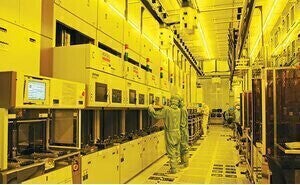Desperate manufacturers are buying knock-off chips from unreliable sources
Semiconductor scammers are taking advantage of desperate chip buyers during a serious shortage
John Annand, an analyst and director in the infrastructure team at the enterprise IT analyst firm Info-Tech Research Group, says, “Many frauds occur simply because buyers are being pressured to release funds to hastily erected, web-based chip distributors, who just as hastily, shut down these websites by the time the promised product is supposed to arrive, destroying any potential for recourse.”
Making matters worse, many manufacturers who get scammed refuse to publicly reveal that they have been ripped off because they do not want the competition to know about it. This prevents word-of-mouth from helping to shut down the counterfeiters. Another reason to keep these incidents secret comes from Mike Borza, who is the principal security technologist at Synopsys. Borza says, “Companies don’t want to admit that they are not savvy enough or don’t have sufficient control over their supply chain to prevent chip fraud.
Building a fabrication facility takes 18 months to 24 months and is not a practical solution to stop the knock-offs
It might seem like common sense to increase the supply of chips to match the strong demand. Annand points out that fabrication plants are expensive to build and “the cleanroom facilities alone are 1,000 times cleaner than an operating theater, requiring 2 to 4 million gallons of incredibly clean water a day.”
But there are more obstacles to building a chip factory than just finding the money as the IT analyst notes. “Even if we found the billions of dollars required for a modern foundry tomorrow—it would still take 18 to 24 months to build. Refitting an old plant for newer, bigger wafers could theoretically increase capacity, but even in 2011 that was a $500 million-plus proposition, assuming you could find the specialized lithography machines required,” Annand states.
Selling counterfeit chips is a practice that could have serious consequences. Borza says, “They may operate incorrectly under certain conditions, or fail permanently before their normal expected lifetime. These kinds of failures can create reliability and warranty return issues, costing the product manufacturer and undermining customer trust.”
For all the latest Technology News Click Here
For the latest news and updates, follow us on Google News.

